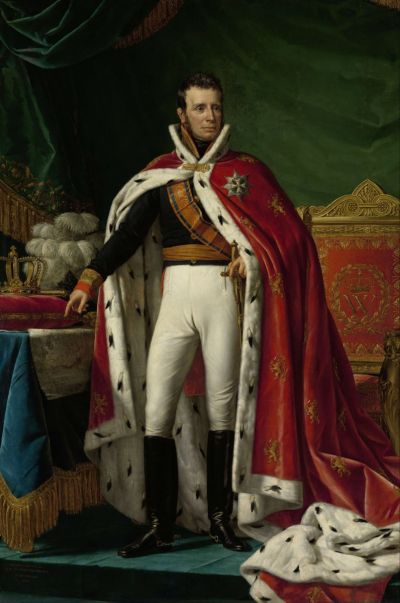The ten days' campaign (Dutch: Tiendaagse veldtocht, French: campagne des Dix-Jours) was a failed military expedition by the United Kingdom of the Netherlands against the secessionist Kingdom of Belgium between 2 and 12 August 1831. The campaign was an attempt by the Dutch King William I to halt the course of the Belgian Revolution which had broken out in August 1830.
The Dutch army invaded Belgium on 2 August 1831 and defeated Belgian forces in several battles over the course of the next few days, advancing deep into Belgian territory. On 8 August, the Belgian government appealed to France for military support. The French agreed to send reinforcements to assist the Belgians under Marshal tienne Grard. Rather than fight the French, the Dutch withdrew from Belgium without achieving their objectives. In November 1832, the French besieged and captured Antwerp, the last Dutch stronghold in Belgium, effectively ending the military confrontation between the Dutch and Belgians.
William I (Willem Frederik, Prince of Orange-Nassau; 24 August 1772 – 12 December 1843) was a Prince of Orange, the King of the Netherlands and Grand Duke of Luxembourg.
He was the son of the last Stadtholder of the Dutch Republic, who went into exile to London in 1795 because of the Batavian Revolution. As compensation for the loss of all his father's possessions in the Low Countries, an agreement was concluded between France and Prussia in which William was appointed ruler of the newly created Principality of Nassau-Orange-Fulda in 1803; this was however short-lived and in 1806 he was deposed by Napoleon. With the death of his father in 1806, he became Prince of Orange and ruler of the Principality of Orange-Nassau, which he also lost the same year after the dissolution of the Holy Roman Empire and subsequent creation of the Confederation of the Rhine at the behest of Napoleon. In 1813, when Napoleon was defeated at the Battle of Leipzig, the Orange-Nassau territories were returned to William and he was asked as well to become the Sovereign Prince of the United Netherlands. He proclaimed himself King of the Netherlands on 16 March 1815. In that year, William I concluded a treaty with King Frederick William III in which he ceded the Principality of Orange-Nassau to Prussia in exchange for becoming the new Grand Duke of Luxembourg. In 1839, he furthermore became the Duke of Limburg as a result of the Treaty of London. After his abdication in 1840, he styled himself King William Frederick, Count of Nassau.

1831Aug, 12
French intervention forces William I of the Netherlands to abandon his attempt to suppress the Belgian Revolution.
Choose Another Date
Events on 1831
- 25Feb
November Uprising
Battle of Olszynka Grochowska, part of Polish November Uprising against Russian Empire. - 29Aug
Electromagnetic induction
Michael Faraday discovers electromagnetic induction. - 8Sep
Battle of Warsaw (1831)
November uprising: Battle of Warsaw ends, effectively ending the Insurrection. - 11Nov
Slave uprising
In Jerusalem, Virginia, Nat Turner is hanged after inciting a violent slave uprising. - 17Nov
Gran Colombia
Ecuador and Venezuela are separated from Gran Colombia.

 English
English  español
español  français
français  português
português  русский
русский  العربية
العربية  简体中文
简体中文 